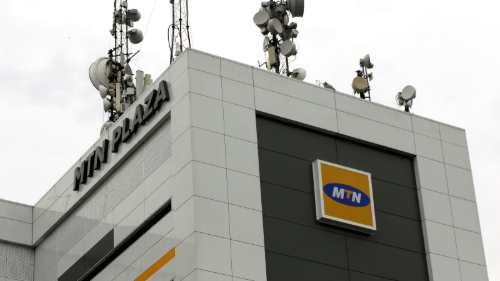Tariff Hike Lifts MTN, Airtel Earnings in Nigeria as ARPU Surges

TLDR
- A 50% increase in telecom tariffs has boosted MTN and Airtel’s earnings in Nigeria, lifting their combined average revenue per user (ARPU) by 31.6%
- Airtel’s ARPU rose 23.5% to $2.10 from $1.70 a year earlier, driving revenue up 29.7% to $332 million
- MTN posted a sharper gain, with ARPU climbing 37.9% to $3.02, while revenue surged 67.9% to ₦1.32 trillion ($860 million)
A 50% increase in telecom tariffs has boosted MTN and Airtel’s earnings in Nigeria, lifting their combined average revenue per user (ARPU) by 31.6% in the second quarter of 2025.
Airtel’s ARPU rose 23.5% to $2.10 from $1.70 a year earlier, driving revenue up 29.7% to $332 million. MTN posted a sharper gain, with ARPU climbing 37.9% to $3.02, while revenue surged 67.9% to ₦1.32 trillion ($860 million). The rebound follows years of underinvestment as naira depreciation eroded dollar returns.
MTN’s core capex jumped to ₦363.3 billion ($237 million) in Q2, a 26-fold increase year-on-year, while Airtel raised spending modestly to $39 million. The Nigerian Communications Commission said the tariff adjustment has already unlocked over $1 billion in new infrastructure investment this year.
Still, consumers are bearing the cost. The average price of 1GB of data has risen to ₦431.25 from ₦287.50, prompting complaints from subscriber groups about affordability. Regulators say improvements will take time as operators phase in upgrades.
Daba's newsletter is now on Substack. Sign up here to get the best of Africa's investment landscape
Key Takeaways
Nigeria’s tariff reform has pulled operators back from the brink after years of squeezed margins, giving MTN and Airtel the revenue headroom to fund long-delayed investments in network expansion. For MTN, Nigeria’s largest market by subscribers but historically a weaker ARPU contributor, the turnaround bolsters group results and supports its pan-African capex push. Airtel Nigeria now ranks just behind its francophone markets on ARPU, strengthening its regional profile. The gains, however, come at a steep cost to consumers already battling inflation and currency depreciation. Higher tariffs have reignited debates about affordability and digital inclusion. For regulators, the challenge will be ensuring that investments translate quickly into better service quality—otherwise, public backlash could undermine support for cost-reflective pricing. Nigeria’s telecom sector is entering a crucial phase: financially healthier operators must now deliver visible improvements to justify higher prices.

Next Frontier
Stay up to date on major news and events in African markets. Delivered weekly.
Pulse54
UDeep-dives into what’s old and new in Africa’s investment landscape. Delivered twice monthly.
Events
Sign up to stay informed about our regular webinars, product launches, and exhibitions.




